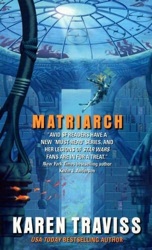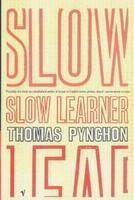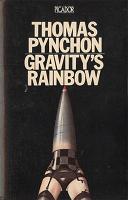 This is a review for Matriarch, the 4th book in the “Wess’har Wars” series by Karen Traviss. Originally the series was planned to run for 3 books, but Karen decided to extend this through a 2nd trilogy.
This is a review for Matriarch, the 4th book in the “Wess’har Wars” series by Karen Traviss. Originally the series was planned to run for 3 books, but Karen decided to extend this through a 2nd trilogy.
Now, normally this is (frequently justified) cause for alarm, and for expectations of not enough material stretched across too many pages. Not here, though, I gladly report. Karen kicks off the 2nd half of the story arc with verve, adding another layer of complexity to the set-up for the last two books. Which I can’t wait for now…
Please note - this review is for book 4 out of 6, so will, by neccessity, contain spoilers for what has gone before. If this bothers you then go and read the first 3 books yet (it's well worth doing, it's a great series!) and then come back.
The situation is not promising – c’naatat, the parasite rendering its host’s genetic make-up malleable and providing near-invincibility, is spreading, despite Shan Frankland’s best efforts to contain it (she spaced herself to keep humanity from getting its hands on it, remember?). But the parasite seems to have other ideas…
The Equbas Vorhi, meanwhile, have started their programme to reduce the birth rate of the Isenj on Umeh, and return the planet to its natural state; as a prelude before the same is done to Earth in 30 years. But, much as it would be expected on Earth, the Isenj society descends into civil war, and it looks like they will do the Equbas’ population reduction work themselves. And, not surprisingly, Earth is losing interest in something that will happen in 30 years (despite how drastic it all is), and returns to the day-to-day squabbles and in-fighting of domestic politics.
As mentioned at the beginning, this set-up for the 2nd trilogy in this story was an obvious chance for disappointment compared to the excellent first trilogy. But, to the contrary, what we have here is a job well done.
The overall mood of the book, in comparison to the first 3 books, is much darker, much more complex, and more nuanced. Karen adds shades of grey to a lot of pictures that were clear black and white before, showing that a lot of areas that appeared to be simple are actually highly relative. But the book doesn’t just consist of idle philosophical discussion, as the temptation for such a move might be; it actually is highly dramatic and gripping, and sometimes acutely funny (it’s mostly Eddie, the BBChan rep, who gets the good lines).
One thing that really appealed to me was how the simplistic worldview the Wess’har (and, by extension, Shan Frankland) have is relativated – dealing in outcomes has it’s own complexities and contradictions. The ecological, ethical, and moral questions raised are interlinked, and have implications and motivations that differ across cultures, species, and philosophies. The book also points out, much stronger than the earlier ones, what the personal consequences of general local thinking and analysis are, sometimes to very drastic effect. It also shows how bad humans are at this, we simply to don’t make the link from what needs doing to what we need to do, it appears (and I have to agree. Very human).
The way the book outlines human thinking, the human condition, and the human motivation (or lack thereof) to act on its own intelligence is wonderfully executed, and reminds in approach (if not execution) of Doris Lessing’s Shikasta series.
The story has some rather heavy impact surprises – and, it a very human way, it’s the individual ones that hit much harder than societal ones. There are two scenes that are rather graphic – not in how they are written, but in how you play them out in your mind; showing, on a personal level, how harsh the consequences of political, ecological, and personal agendas and considerations can be.
A great book, kicking off the 2nd half of this great series. I’m surprised Karen Traviss isn’t more of a household name within SF yet, given this book (and this series) she would deserve to become one. Highly recommended.
More Karen Traviss













